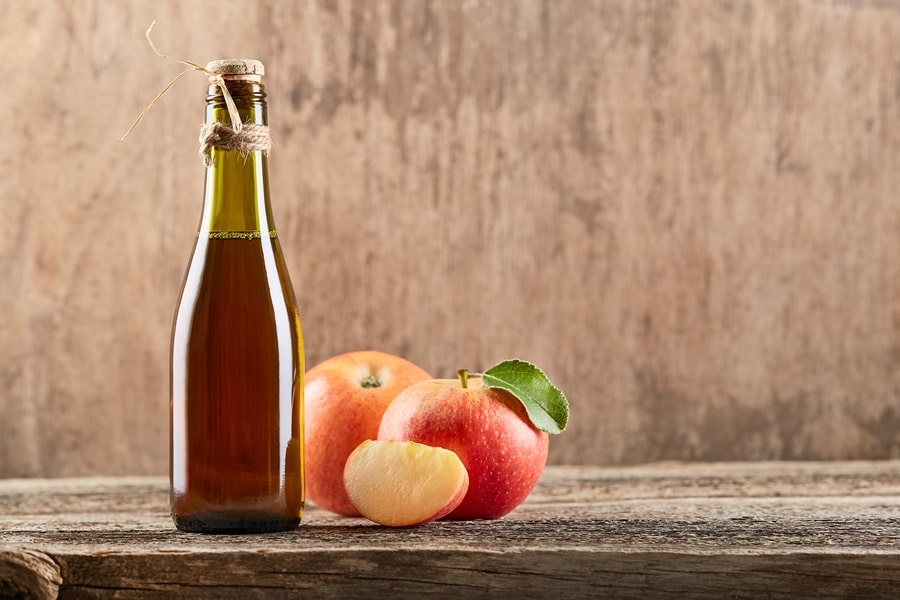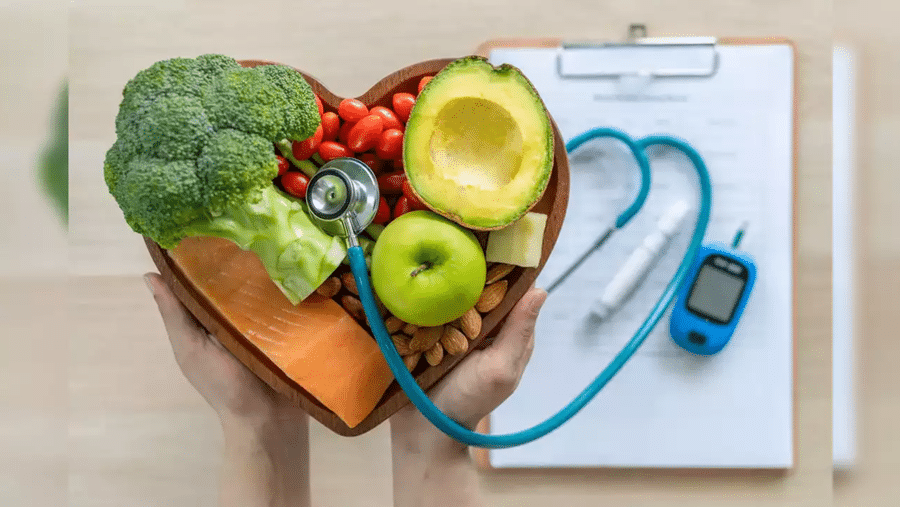The relationship between diet and cancer risk is an intricate and increasingly researched area. Various studies have shown that certain foods can elevate the risk of developing cancer, making dietary choices a critical aspect of cancer prevention. This blog post delves into specific foods known to increase cancer risk, providing insights into the underlying reasons for their harmful effects. Understanding these connections can empower individuals to make more informed decisions about their diet and overall health.
Contents
Desserts

Desserts, especially those high in sugar, are often linked to an increased risk of cancer, primarily due to their role in obesity. Obesity is a significant risk factor for various types of cancer, including breast, colorectal, and pancreatic cancers. The excessive sugar in desserts can lead to weight gain and fat accumulation, creating an environment conducive to cancer development. Furthermore, the high caloric content of these sweet treats, often devoid of essential nutrients, contributes to a diet that can imbalance the body’s natural processes.
Another concern with desserts, particularly baked goods, is the presence of acrylamide, a substance formed when starchy foods are cooked at high temperatures. Studies have indicated that acrylamide can cause cancer in laboratory animals, and while the evidence in humans is still evolving, it remains a potential risk factor. This compound forms during the Maillard reaction, responsible for the browning and flavoring of baked goods, and is considered a carcinogen by several health organizations.
Processed Meats
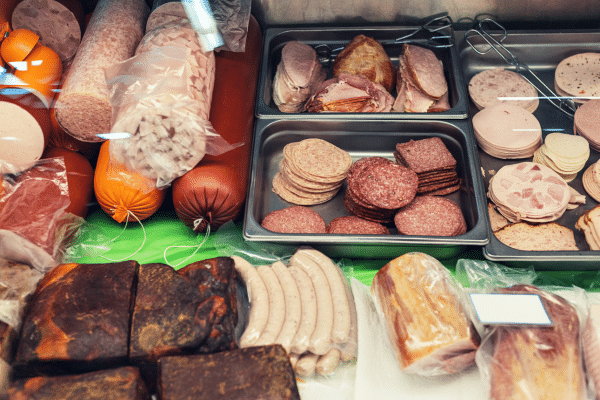
Processed meats, such as bacon, sausages, and deli meats, have been classified as Group 1 carcinogens by the International Agency for Research on Cancer (IARC). This classification means that there is sufficient evidence to suggest that consuming processed meats can cause cancer, particularly colorectal cancer. The preservatives used in these meats, such as nitrates and nitrites, can form N-nitroso compounds in the body, which are known to be carcinogenic. Additionally, the smoking process often used in preparing these meats can lead to the formation of other harmful chemicals.
Another dimension to the risk posed by processed meats is the high levels of salt and fat they contain. A diet high in salt is linked to an increased risk of stomach cancer, while high fat content can contribute to obesity, a significant risk factor for several cancer types. The regular consumption of processed meats can thus contribute to an overall dietary pattern that elevates cancer risk, making it prudent to limit their intake or opt for healthier alternatives.
Fried Foods
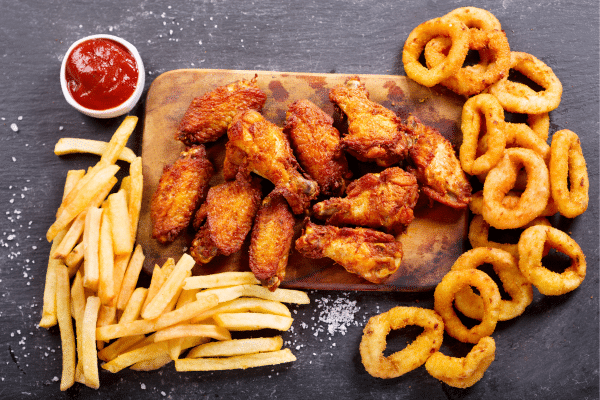
Fried foods are another category linked to an increased cancer risk, primarily due to the carcinogens that can form during the frying process. One such carcinogen is acrylamide, which is formed when starchy foods are cooked at high temperatures. Regular consumption of fried foods, particularly those cooked in reused oils, can lead to higher exposure to these harmful substances. Additionally, fried foods are typically high in fat and calories, contributing to obesity, a well-established risk factor for various cancers.
Beyond carcinogens, fried foods are often associated with a diet high in unhealthy fats, which can lead to increased inflammation in the body. Chronic inflammation is known to play a role in the development of cancer, as it can lead to DNA damage over time. Therefore, limiting the consumption of fried foods can be a key step in a diet aimed at reducing cancer risk, focusing instead on healthier cooking methods such as baking, steaming, or grilling.
Alcohol

Alcohol consumption is a well-established risk factor for several types of cancer, including liver, breast, esophageal, and oral cancers. Alcohol has been classified as a Group 1 carcinogen, indicating that there is strong evidence of its carcinogenicity in humans. The risk of cancer increases with the amount of alcohol consumed and the frequency of consumption. Alcohol can damage body tissues, interfere with the absorption of essential nutrients, and produce harmful metabolites like acetaldehyde.
The relationship between alcohol and cancer is also influenced by other factors, such as genetics and lifestyle. Individuals who smoke and consume alcohol, for example, have a significantly higher risk of developing oral and throat cancers than those who only engage in one of these behaviors. Moderation in alcohol consumption or complete abstinence is advisable to reduce cancer risk, along with a healthy lifestyle that includes regular physical activity and a balanced diet.
Dairy
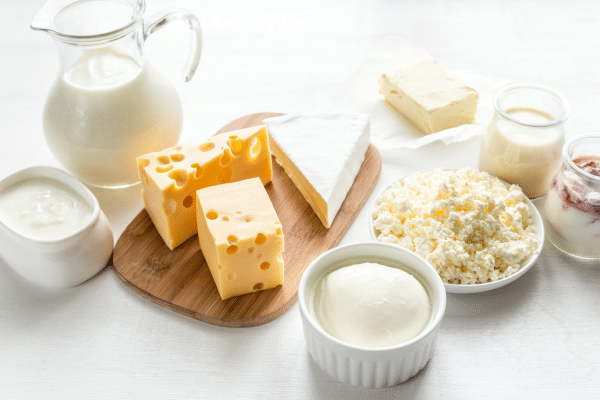
Dairy products, particularly those high in fat, have been the subject of research regarding their potential link to cancer. Some studies suggest that high-fat dairy products may be associated with an increased risk of certain types of cancer, such as prostate and breast cancer. The high calorie and fat content of these products can contribute to weight gain, a risk factor for several cancers. Additionally, the presence of hormones in dairy products, which are used to stimulate milk production in cows, has raised concerns about their impact on human health.
However, the relationship between dairy consumption and cancer risk is complex and not fully understood. Some studies have found that certain dairy products might have protective effects against certain types of cancer, like colorectal cancer. This highlights the importance of balance and moderation in dairy consumption. Choosing low-fat dairy options and limiting the intake of high-fat dairy products can be a sensible approach to reducing potential cancer risks associated with dairy consumption.
Sugary Drinks
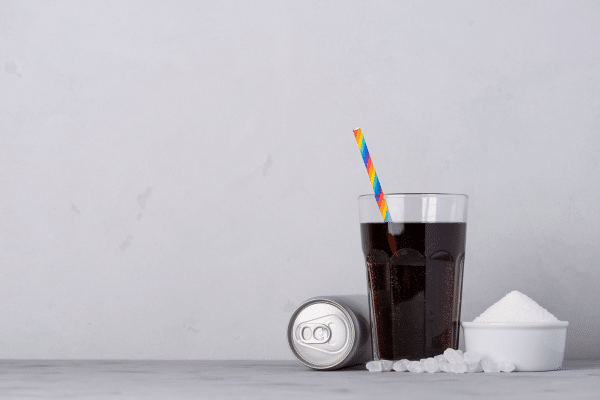
Sugary drinks, including sodas and fruit-flavored beverages, pose a significant cancer risk, primarily due to their role in promoting obesity. Obesity is a known risk factor for various types of cancer, such as endometrial, esophageal, and renal cancers. The high sugar content in these drinks leads to excessive calorie intake without providing essential nutrients, contributing to weight gain. Additionally, frequent consumption of sugary drinks can lead to an increased risk of developing type 2 diabetes, another risk factor for several cancers.
The relationship between sugary drinks and cancer also involves the mechanism of insulin resistance. High sugar intake causes spikes in insulin levels, and over time, this can lead to insulin resistance. This condition is associated with an increased risk of several cancers, as high insulin levels can promote the growth of cancer cells. Studies suggest that reducing the intake of sugary drinks can be a beneficial step in lowering cancer risk, along with improving overall health.
Refined Grains
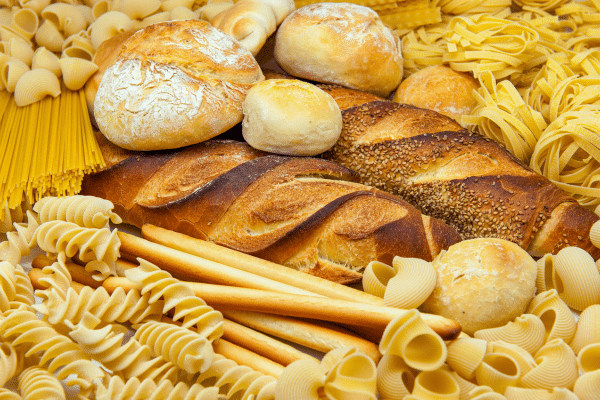
Refined grains, such as white bread, pasta, and rice, have been associated with an increased risk of cancer due to their high glycemic index. Foods with a high glycemic index can lead to rapid spikes in blood sugar and insulin levels, contributing to obesity and insulin resistance, both of which are risk factors for several types of cancer. Refined grains are stripped of their fiber and essential nutrients during processing, reducing their nutritional value and health benefits.
The lack of fiber in refined grains is a significant concern, as fiber plays a crucial role in maintaining a healthy digestive system and preventing colorectal cancer. Whole grains, on the other hand, are rich in fiber, vitamins, and minerals, and have been associated with a lower risk of cancer. Therefore, replacing refined grains with whole grains in the diet can contribute to better overall health and a reduced risk of cancer.
The Bottom Line
Understanding the relationship between diet and cancer risk is crucial for making informed dietary choices. Foods high in sugar, unhealthy fats, and carcinogenic compounds, such as desserts, processed meats, sugary drinks, fried foods, and certain dairy and grain products, can increase the risk of developing cancer. Limiting the intake of these foods, along with moderate alcohol consumption, can be beneficial in reducing this risk. Adopting a balanced diet, rich in fruits, vegetables, whole grains, and lean proteins, along with regular physical activity, is essential for maintaining overall health and potentially lowering the risk of cancer.
